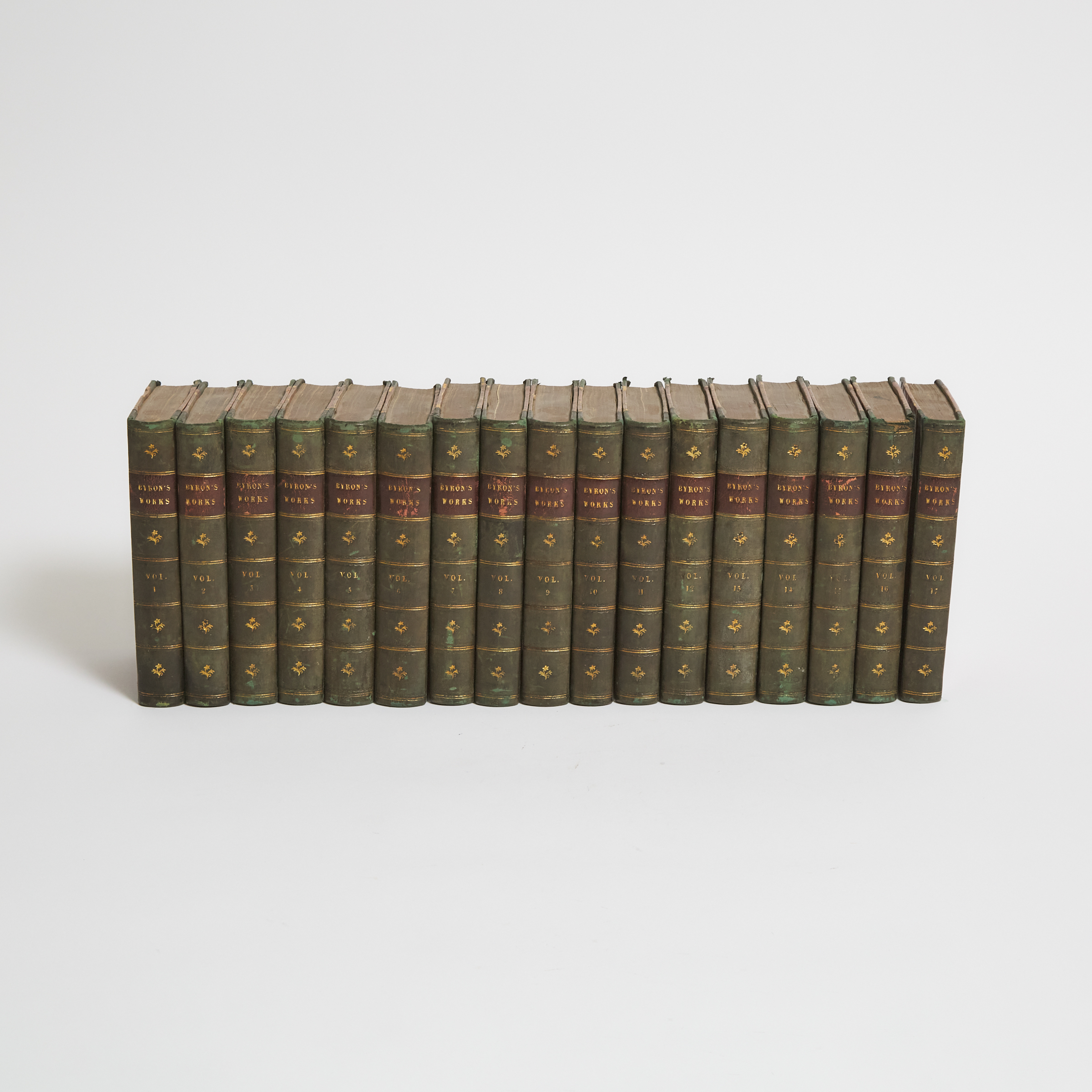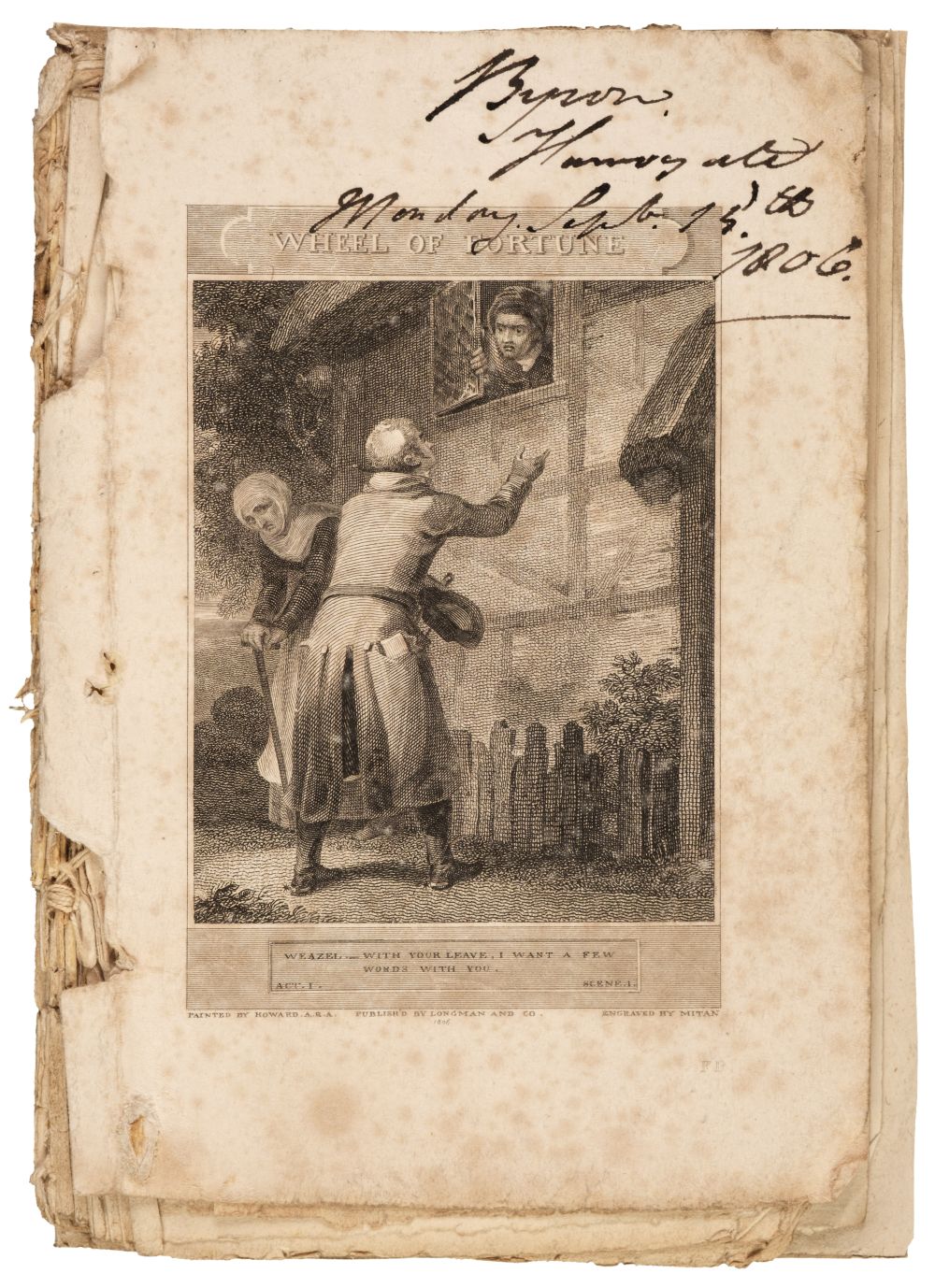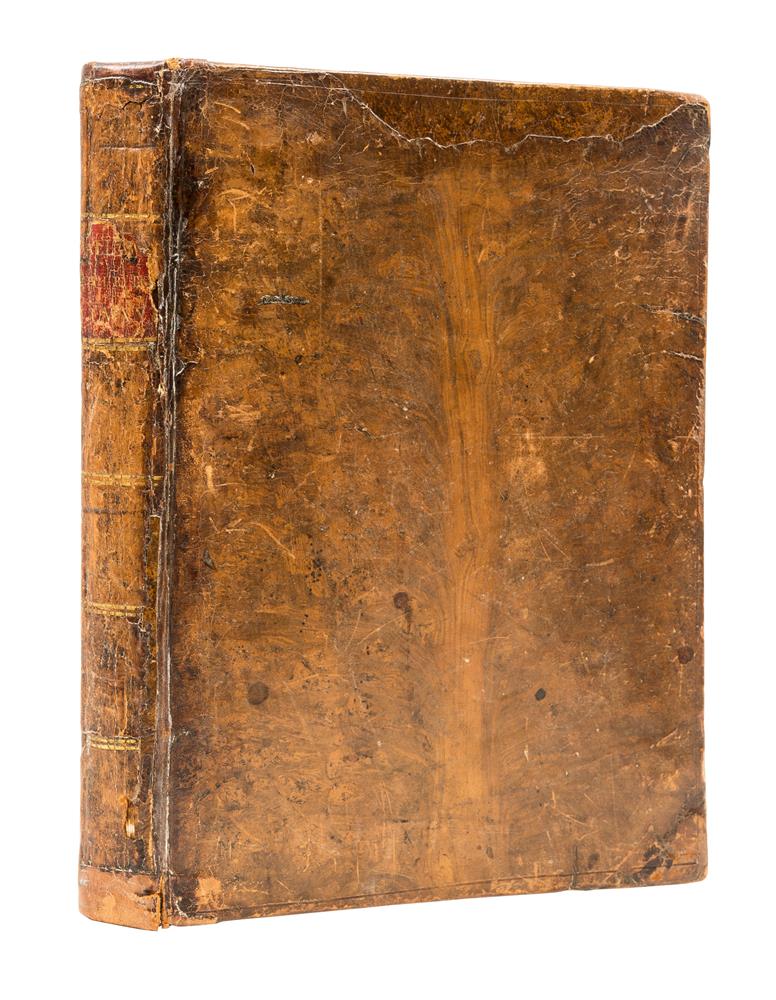Lord Byron (1788-1824) The Curse of Minerva. 1812 [BYRON, George Gordon Lord (1788-1824)]. The Curse of Minerva. London: Printed by T. Davison, 1812. Exceptionally rare privately printed first edition, complete and uncut in contemporary boards. Composed at Athens in 1811, The Curse of Minerva is Lord Byron’s scornful response to the removal from Greece of the Elgin Marbles. The most famous contemporary critic of Lord Elgin, Byron ‘deserves more credit than he has been given for inventing the terms of the argument to restore the marbles to Greece’ (Hubbell). 'The key premise was that of cultural nationalism: the Marbles were Greek and belonged in Greece. Since Byron, that premise has been solidly built into Western thought’ (Merryman). Wise tentatively suggests a print run of just 100 copies, adding that he knew of only five perfect copies and one imperfect copy. We are unable to trace any complete copy at auction since 1945. J. Andrew Hubbell, Byron's Nature: A Romantic Vision of Cultural Ecology, 2017; John Henry Merryman, Thinking about the Elgin Marbles, 2009; Randolph p.117; Wise pp.69-70. Quarto (284 x 229mm). With the imprint leaf (a few insignificant spots, short marginal tear to fore-edge of C3). Uncut in contemporary black paper covered boards (lightly rubbed, minor chips and tears to spine). Provenance: two amendments to the text in a contemporary hand – p.13: changing ‘accurs’d’ to ‘accursed’; and p.22: changing ‘where’ to ‘whose’.
Lord Byron (1788-1824) The Curse of Minerva. 1812 [BYRON, George Gordon Lord (1788-1824)]. The Curse of Minerva. London: Printed by T. Davison, 1812. Exceptionally rare privately printed first edition, complete and uncut in contemporary boards. Composed at Athens in 1811, The Curse of Minerva is Lord Byron’s scornful response to the removal from Greece of the Elgin Marbles. The most famous contemporary critic of Lord Elgin, Byron ‘deserves more credit than he has been given for inventing the terms of the argument to restore the marbles to Greece’ (Hubbell). 'The key premise was that of cultural nationalism: the Marbles were Greek and belonged in Greece. Since Byron, that premise has been solidly built into Western thought’ (Merryman). Wise tentatively suggests a print run of just 100 copies, adding that he knew of only five perfect copies and one imperfect copy. We are unable to trace any complete copy at auction since 1945. J. Andrew Hubbell, Byron's Nature: A Romantic Vision of Cultural Ecology, 2017; John Henry Merryman, Thinking about the Elgin Marbles, 2009; Randolph p.117; Wise pp.69-70. Quarto (284 x 229mm). With the imprint leaf (a few insignificant spots, short marginal tear to fore-edge of C3). Uncut in contemporary black paper covered boards (lightly rubbed, minor chips and tears to spine). Provenance: two amendments to the text in a contemporary hand – p.13: changing ‘accurs’d’ to ‘accursed’; and p.22: changing ‘where’ to ‘whose’.



.jpg)




.jpg)
.jpg)

Testen Sie LotSearch und seine Premium-Features 7 Tage - ohne Kosten!
Lassen Sie sich automatisch über neue Objekte in kommenden Auktionen benachrichtigen.
Suchauftrag anlegen